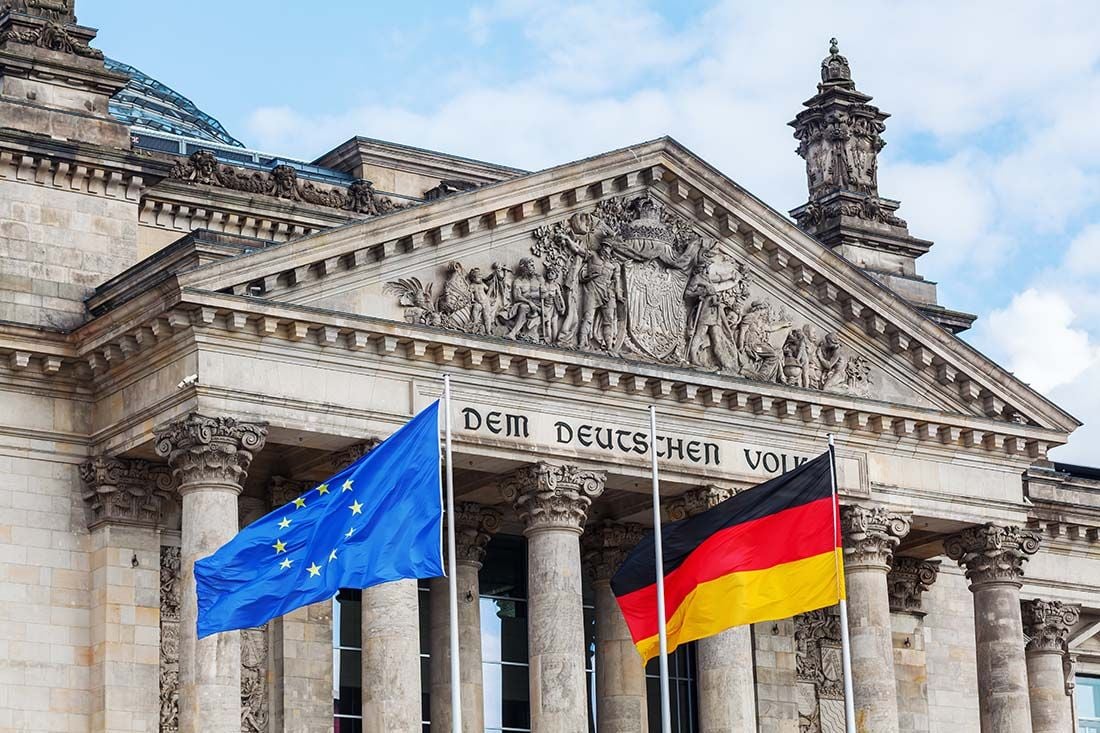Speck of Light Ahead for Germany's Economy
- Written by: Gary Howes

Image © Adobe Stock
Another poor economic survey confirms Germany's economy is likely in a recession. But those looking ahead see the potential for a turnaround.
The Institute for Economic Research (ifo) said its survey of business sentiment fell for a fifth consecutive month to 85.4 in September from 88.6 in August.
The current assessment component of the Ifo Business Climate Survey dropped to 84.4 from 86.4 in August, while expectations fell to 86.3 from 86.8 in September. The data follows Monday's German Composite PMI release, which came in at 47.2, putting it below the 50 waterline that separates economic contraction from expansion.
"For now, following German macro data is more like a long stroll on the boulevard of broken dreams," says Carsten Brzeski, Global Head of Macro at ING Bank.
The manufacturing sector bears the brunt of the deterioration, with the manufacturing sub-reading for the Ifo survey sector falling to its lowest level since 2020. But the Ifo and PMI surveys also show the services sector is showing clear signs of slowing as the drag of Germany's dominant manufacturing sector starts to become irresistable.
"The fall in the German Ifo in September adds to the evidence that the German economy is back in recession," says Franziska Palmas, Senior Europe Economist at Capital Economics.
However, ING's Brzeski says the tide could soon turn:
"Don't rule out potential positive surprises towards the end of the year. While the highest increase in real wages in more than a decade could still open German consumers’ wallets, despite increasing job loss fears, it is industrial production that could still come to the rescue.".
Brzeski explains that inventories have been at high levels for an unprecedented length of time.
"It'd only take a small improvement in industrial order books to turn the inventory cycle and get industrial production growing again. Admittedly, this would be a cyclical improvement coming from very low levels, hardly changing the narrative of a country stuck in stagnation."
The slowdown in the Eurozone economy, signalled by Monday's PMI survey, has meanwhile seen markets raise expectations for an October interest rate cut at the European Central Bank (ECB).
"On the positive side, the continued flow of negative surveys and data should enhance hopes that the European Central Bank will accelerate the pace of interest rate cuts, which may contribute to reviving the region’s economy," says Samer Hasn, Senior Market Analyst at XS.com.
In addition, China on Tuesday announced a significant set of stimulus measures aimed at stoking the country's economy in order to achieve the mandated 5.0% annual growth target.
China is important to Germany as it is a significant export market for Germany's high-tech exports. A revival in demand here could bolster German exports in the coming months, raising hopes that the nadir is close at hand.



